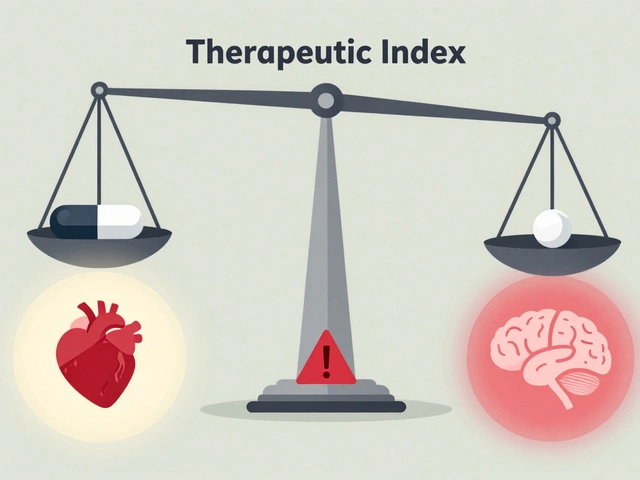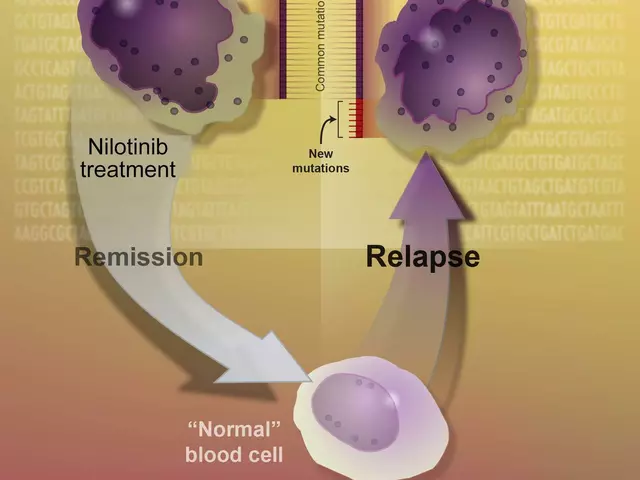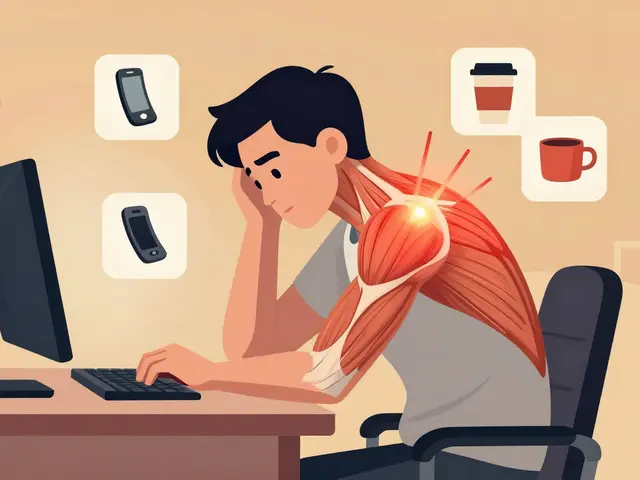Starting Line: Understanding Parkinson's Disease
The first thing to comprehend when speaking of Parkinson's disease is the nature of the beast itself. Parkinson’s Disease is a neurological condition that affects the brain’s ability to control movement. At a more technical level, it involves the slow and progressive degeneration of nerve cells in the brain's mid-region, specifically the substantia nigra. These cells typically produce a chemical called dopamine, which is necessary for smooth and controlled muscle movement. As these cells die, less dopamine is produced resulting in the symptoms associated with Parkinson's Disease. Now that’s a scientific jawbreaker!
However, it's essential to note that Parkinson's Disease isn't like that surprise pop quiz in college you could never prepare for. It doesn't just spring out of the blue. Instead, it has a steady progression that consists of various stages. Each stage is essentially a window into the degree of impairment a person with Parkinson's is experiencing. It's like watching the chapters of a book unfold, where each chapter has its unique storyline but is inherently tied to the overall plot. But, unlike my favorite mystery novel, these chapters can span over several years, even decades!
The Divulging Journey: Stages of Parkinson's Disease Progression
Now, we've all been on some memorable journeys, haven't we? I once took a road trip across the country where the GPS died halfway, and my acute sense of direction (or rather, the lack thereof) made several bewildering detours part of the adventure. Trying to understand Parkinson's progression is somewhat similar. Each stage presents its challenges and detours. However, I promise this journey is far less chaotic and more systematic. It's a 5-stage progression scale developed by two brilliant minds, Margaret Hoehn and Melvin Yahr, in the 1960s. Let's strap in, shall we?
Setting Off: Stage One
The beginning of any journey is also the period of getting settled. It's like those initial bumpy miles of a long drive: subtle, almost unnoticeable. It's here that the early symptoms of Parkinson's Disease emerge. They are usually mild and affect only one side of the body. A person in this stage could experience tremors or slight shaking in a limb. Other early signs may include loss of smell, constipation or even a change in handwriting. For instance, think about trying to write on that bumpy ride - that's what micrographia might seem like.
Moving Ahead: Stage Two
Once the journey becomes steadier, more changes are noticed – you start spotting peculiar signs, perhaps some unusual terrain, or the GPS recovered and is frenziedly directing in circles, in case of my exceptionally memorable road trip! As for Parkinson's, that's when it hits stage two. Symptoms become more noticeable and could include tremors, rigidity, and postural instability. Unlike stage one, both sides of the body might get affected, and daily tasks may become harder to perform as a result.
Midway Stopover: Stage Three
Midway through any trip, things start getting real. Your backs start to ache from sitting too long, and the endless stretches of the road become jaded – you start questioning your life choices. In Parkinson's disease, stage three is similar. It’s the turning point. Patients tend to experience loss of balance and slower movements. Falls become more frequent. The symptoms become serious enough to impact daily activities. But remember, just as you can get a good stretch, a quick jog, or a power nap at a stopover, therapies and medications can help manage these symptoms. We'll delve into that soon, I promise!
Steering Through: Coping Mechanisms and Treatments
Now, what good would my travel analogies be if they didn't come with survival tips? Likewise, understanding Parkinson's disease wouldn't be complete without understanding the coping mechanisms and treatments available.
The good news in our bumpy journey analogy for Parkinson's is that there's plenty of room in the trunk for luggage packed with medication, therapies, and self-care strategies. The disorder can be managed with medication that helps control the symptoms by increasing the brain's dopamine supply. You might need to pop more luggage in the trunk as your journey continues, with medications being adjusted according to each stage of Parkinson's.
But remember, medication isn't the only survival toolkit. Physical, occupational, and speech therapy can all be crucial in managing the symptoms. Physical therapy can help with balance and flexibility, while occupational therapy assists in ensuring everyday tasks aren't as daunting as they seem. Speech therapy comes in handy when vocal cord muscles are affected. See, it’s not all just endless gas stations and convenience store snacks on this journey!
Destination: Acceptance and Support
As with any journey, acceptance and support can make the ride smoother. Parkinson's is a marathon, not a sprint, and it needs the patient and the support system to acknowledge and understand this. It's important for the person with Parkinson's disease not to shoulder the journey alone. Getting support from loved ones, healthcare professionals, support groups, or counseling services can make navigating the stages of Parkinson's far more manageable.
I remember, my great aunt had Parkinson's, and her resilient spirit coupled with our family's support made her journey far better. She used to say, "Life has given me Parkinson's, but also a stand-up comedy career." Hers was indeed a peculiar sense of humor! She would turn her tremors into dance moves, her slow movements into miming performances – she lived as vibrantly as one possibly could, and that, folks, is the spirit we need!
Keep Rolling: Stay Informed, Stay Alert
The key to nailing any journey, be it a road trip or managing a condition like Parkinson's, is to stay informed and alert. Oh boy, I wish I knew that before my GPS failed during that road-trip! That's why it's important to continue learning about Parkinson’s disease and keep the communication open with your healthcare team. Knowledge is your strongest ally on this arduous journey. And most importantly, always remember - you may have Parkinson's, but Parkinson's doesn't have you.






maria norman
2 August 2023 - 02:10 AM
So Parkinson’s is just life’s way of turning your body into a glitchy GPS that keeps rerouting you to ‘Detour: Existential Dread’? I’m impressed. The poetry of degeneration.
Also, dopamine isn’t just a neurotransmitter-it’s the universe’s way of saying, ‘You had one job.’
katerine rose
2 August 2023 - 11:46 AM
i read this whole thing and still dont know if im gonna get parkinsons or if its just my phone vibrating in my pocket again lmao
Richa Shukla
3 August 2023 - 14:18 PM
this is all fake. parkinsons is caused by 5g towers and the government hiding the cure so they can sell you expensive meds. my cousin’s neighbor’s dog had tremors and the vet said it was 'emotional trauma from wifi' 🤡
Chris Rowe
4 August 2023 - 04:28 AM
man i thought i was just old but turns out i got parkinsons and didnt even know it. guess i’ll start dancing now 🕺
Iris Schaper
6 August 2023 - 03:13 AM
so if dopamine is the thing that makes us move smooth, then why does my brain feel like it’s running on dial-up while my body’s trying to buffer? i swear i just wanted to grab a coffee and now i’m staring at my hand like it’s a stranger.
also why do all these articles sound like they were written by a travel blogger who got lost in a neuroscience textbook?
bhuvanesh kankani
7 August 2023 - 10:55 AM
The structured progression of Parkinson’s, as outlined by Hoehn and Yahr, offers not only clinical clarity but also a framework for compassionate care. In many parts of India, where access to neurologists remains limited, community-based rehabilitation and family support become the primary pillars of management.
It is vital that we do not reduce this condition to metaphor alone. While analogies aid understanding, they must not eclipse the lived reality of those who endure tremors, dyskinesia, and the silent erosion of autonomy.
My grandfather lived with Stage IV Parkinson’s for twelve years. He never lost his dignity. He taught me that resilience is not loud-it is the quiet act of buttoning a shirt with shaking hands.
Francis Pascoe
9 August 2023 - 09:07 AM
I’ve been waiting for someone to say this but NO ONE DARES TO-PARKINSON’S IS JUST A BUREAUCRATIC NIGHTMARE DISGUISED AS A NEUROLOGICAL DISEASE.
They give you levodopa like it’s candy, then wonder why you’re hallucinating at 3am. Then they say ‘just adjust the dose.’ Adjust it how? With your feelings? With your hope? With your broken spine?
And don’t even get me started on insurance. My uncle got denied coverage because his tremor wasn’t ‘severe enough.’ SEVERE ENOUGH FOR WHAT? TO DIE QUIETLY?
Selma Cey
11 August 2023 - 08:52 AM
I mean… what if Parkinson’s isn’t a disease at all? What if it’s just evolution’s way of saying, ‘Hey, you’ve been moving too fast. Slow down. Sit. Breathe. Stop checking your phone.’
Maybe the real cure is a yoga retreat and a Netflix subscription.
Sushmita S
12 August 2023 - 02:49 AM
my grandma had this and she still made the best samosas 😭❤️